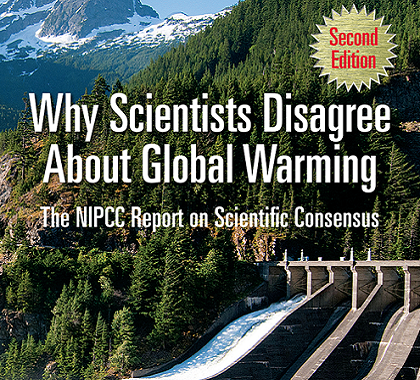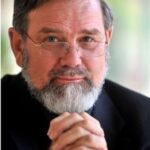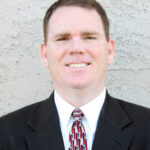From March through June 2017, The Heartland Institute mailed some 300,000 copies of the second edition of this book to K-12 and college science teachers across America. Read the cover letter of that mailing here.
The Heartland Institute has defended its decision to send the book to educators against criticism by three liberal Congressmen (see here, and here) and the National Science Teachers Association (see here). We’ve also responded to a ‘Spanish Inquisition-style’ letter to Education Secretary Betsy DeVos sent by radical Democratic U.S. Sens. Sheldon Whitehouse, Elizabeth Warren, Brian Schatz, and Edward Markey (see here).
Please read the information at the links above, as well as other replies to our critics, before judging Heartland. Also watch some FAQ videos at the bottom of this page.
________________
The book was mailed out with a copy of an 11-minute DVD titled “History of Climate Change in Greenland.” This video, produced by Free To Choose Media (izzit.org) was previously titled “Unstoppable Solar Cycles: Rethinking Global Warming.” You can see the original video and teachers’ materials at this site.
Watch the video below:
________________
November 30, 2015 – Today, on the first day of the United Nations’ twenty-first conference of the parties (COP-21) taking place in Paris, a new book emphatically rejects claims of a “scientific consensus” on the causes and consequences of climate change. We are distributing hundreds of copies in Paris. You can read it for free online here, or by a copy at the Heartland Store. A collection of reviews is here.
The authors are three prominent climate scientists affiliated with the Nongovernmental International Panel on Climate Change (NIPCC). The book is titled Why Scientists Disagree about Global Warming: The NIPCC Report on Consensus.
About the Book
“Probably the most widely repeated claim in the debate over global warming is that ‘97% of scientists agree’ that climate change is man-made and dangerous,” the authors write. “This claim is not only false, but its presence in the debate is an insult to science.”
With these words, the authors begin a detailed analysis of one of the most controversial topics of the day. The authors make a compelling case against claims of a scientific consensus. The purported proof of such a consensus consists of sloppy research by nonscientists, college students, and a highly partisan Australian blogger. Surveys of climate scientists, even those heavily biased in favor of climate alarmism, find extensive disagreement on the underlying science and doubts about its reliability.
The authors point to four reasons why scientists disagree about global warming: a conflict among scientists in different and often competing disciplines; fundamental scientific uncertainties concerning how the global climate responds to the human presence; failure of the United Nations’ Intergovernmental Panel on Climate Change (IPCC) to provide objective guidance to the complex science; and bias among researchers.
The authors offer a succinct summary of the real science of climate change based on their previously published comprehensive review of climate science in a volume titled Climate Change Reconsidered II: Physical Science. They recommend policymakers resist pressure from lobby groups to silence scientists who question the authority of IPCC to claim to speak for “climate science.”
CRAIG D. IDSO, Ph.D., a climatologist, is one of the world’s leading experts on the effects of carbon dioxide on plant and animal life and is chairman of the Center for the Study of Carbon Dioxide and Global Change.
ROBERT M. CARTER, Ph.D., a paleogeologist, is emeritus fellow of the Institute of Public Affairs in Australia and author of Climate Change: The Counter Consensus (London: Stacey International, 2010).
S. FRED SINGER, Ph.D., a physicist, is president of the Science and Environmental Policy Project and founder of the Nongovernmental International Panel on Climate Change (NIPCC).
About NIPCC
The Nongovernmental International Panel on Climate Change (NIPCC) is an international panel of nongovernment scientists and scholars who have come together to present a comprehensive, authoritative, and realistic assessment of the science and economics of global warming. Whereas the reports of the United Nations’ Intergovernmental Panel on Climate Change (IPCC) warn of a dangerous human effect on climate, NIPCC concludes the human effect is likely to be small relative to natural variability, and whatever small warming is likely to occur will produce benefits as well as costs.
NIPCC is sponsored by three nonprofit organizations: the Center for the Study of Carbon Dioxide and Global Change, the Science and Environmental Policy Project (SEPP), and The Heartland Institute.
This volume, like past NIPCC reports, is edited and published by the staff of The Heartland Institute, a national nonprofit research and educational organization newly relocated from Chicago to suburban Arlington Heights, Illinois.
Reviews
“This book by climate scientists Craig D. Idso, Robert M. Carter, and S. Fred Singer is a tour de force on the scientific debate about global warming. The book is relatively short, just 101 pages divided into seven chapters. Each chapter leads off with a summary of key findings, and each chapter section is supported by many references to the scientific literature. … Many books and papers about global warming contain many, sometimes confusing, graphs. Not this one. Some readers may be happy to know that there are only three graphs in the whole book. The authors get right to the point with their succinct, easy-to-read explanations. … I highly recommend this book for those who want to know the real story of global warming, and I recommend it especially for those who believe the IPCC and government propaganda.”
— Jonathan DuHamel, Arizona Daily Independent
“Craig Idso, Robert Carter and S. Fred Singer tackled climate change alarmism in the book, ‘Why Scientists Disagree About Global Warming: The NIPCC Report on Scientific Consensus,’ published by the Heartland Institute. As much as the liberal media, liberal academics and pundits tell Americans that the earth is too warm and human beings are the cause for a spike in weather and temperature changes, there is little-to-no scientific consensus to support these assertions…. [I]t is clear that the climate change agenda turns a blind eye to neutral and impartial studies of the subject.”
— Spencer Irvine, Accuracy in Academia
“Besides being a synopsis of a much larger work — a chapter in a forthcoming volume titled ‘Climate Change Reconsidered II: Benefits and Costs of Fossil Fuels’ — the book is a rejoinder to the sound-bite science that is so popular today. ‘Why Scientists Disagree About Global Warming’ chews up these sound bites, such as: ’97 percent of scientists agree’ with the conclusion that humans are causing catastrophic climate change; or, skeptics of the ‘consensus view’ are paid off by big fossil fuel industries. ‘Why Scientists Disagree About Global Warming’ is a virtual handbook of well-documented arguments and cogent perspective that counter nearly every assertion given to ‘prove’ that human beings are responsible for climate disaster.”
— Anthony J. Sadar, Washington Times
“[A]s COP-21 got under way, the Nongovernmental International Panel on Climate Change (NIPCC) released a new book titled ‘Why Scientists Disagree about Global Warming: The NIPCC Report on Consensus’. This important new book lays bare and refutes the claim that there is a ‘scientific consensus’ on the causes and consequences of climate change… [I]t’s a breath of fresh air that this book has been published to coincide with the Kabuki theatre happening right now in Paris at COP-21.
“We are told on a daily basis that ’97 percent’ of climate scientists agree that man-made climate change will doom the world within a generation. But since nothing the scientists predict ever comes true – and they keep pushing the climate doomsday farther out – we’ve wondered if the vast majority of scientists really believe it. This new book from the Heartland Institute debunks the idea of consensus totally. Written by three insider Ph.D.’s, it ‘comprehensively and specifically’ rebuts the surveys and studies used to support claims science is of one mind. It goes on to summarize the evidence proving that there is disagreement – and then it explains why the scientists disagree. This book is useful if you’re tired of explaining to your low-information friends why climate change is a fraud.”
“This report by the Non-intergovernmental Panel on Climate Change (NIPCC) shows that there is no consensus about the effects of fossil fuel use and discusses why scientists disagree about global warming. Articles and surveys most commonly cited as showing a ‘scientific consensus’ in favor of the CAGW hypothesis are without exception methodologically flawed and often deliberately misleading. This report features a report by the Friends of Science. Climate scientists disagree because of fundamental uncertainties arise from insufficient observational evidence, disagreements over how to interpret data, and how to set the parameters of models.”
“The Heartland Institute released at COP-21 in Paris its newest book on global warming: ‘Why Scientists Disagree About Global Warming.’ The authors demolish the most pernicious myth in the global warming debate: that ‘97% of scientists’ believe mankind is the cause of a global warming catastrophe. Scientists Craig Idso, Fred Singer, and Robert Carter critique the sources of this myth and present a summary of the physical science that makes it plain beyond any doubt that there is no global warming crisis.”
— Rich Kozlovich, Paradigms and Demographics
“Here’s a new essay on this crucial subject by some well-informed people. There has been a lot written about the so-called ‘scientific consensus’ by those who wish to promote the warmist cause, that this new essay is needed to redress the balance and set the record straight. There is no consensus. In fact there is a massive debate over the main issue, which is what effect on climate will an increase in CO2 caused by burning fossil fuels have. That is (quite literally!) the burning question.”
“[A] new book is getting a lot of attention, because it emphatically rejects claims of a ‘scientific consensus’ on the causes and consequences of climate change. Titled ‘Why Scientists Disagree about Global Warming,’ it suggests that probably the most widely repeated claim in the global warming debate is that 97 percent of scientists agree that climate change is man-made and dangerous. Doctors, Craig D. Idso, Robert M. Carter, and S. Fred Singer — three prominent climate scientists affiliated with the Nongovernmental International Panel on Climate Change — write: ‘This claim is not only false, but its presence in the debate is an insult to science.'”
“A recent publication by The Heartland Institute called Why Scientists Disagree About Global Warming: The NIPCC Report on Scientific Consensus … edited by Craig D. Idso, Robert M. Carter, and S. Fred Singer, thoroughly documents the flawed methodology utilized by Climate Change scientists. It also puts the lie to President Obama’s ‘Ninety-seven percent of scientists agree: climate change is real, man-made and dangerous.'”
— Bill Lockwood, American Policy Center
“At ‘A Day of Examining the Data,’ the December 7 counter-conference to COP21, the Nongovernmental International Panel on Climate Change (NIPCC) released a report titled ‘Why Scientists Disagree About Global Warming.’ … The report refutes most of the UN proclamations. … The NIPCC gives the following sensible policy advice: (1) ‘Policymakers should seek out advice from independent, nongovernment organizations and scientists who are free of financial and political conflicts of interest.’ (2) ‘Individual nations should take charge of setting their own climate policies based upon the hazards that apply to their particular geography, geology, weather, and culture.’ (3) ‘Rather than invest scarce world resources in a quixotic campaign based on politicized and unreliable science, world leaders would do well to turn their attention to the real problems their people and their planet face.’ After drinking the poison Captain Hook had intended for Peter, Tinker Bell survived only because children across the world clapped loudly to show their belief in fairies. The UN believes their hopeless, naïve, and dangerous climate change plans can survive as long as the media and politicians keep clapping. It’s time they stopped and let the climate scare die.”
— Tom Harris, International Climate Science Coalition
“The key thing to be aware of … is that there is no consensus on the matter of what is causing GW (absent for the past 18 years) and if humans have any impact. You will hear that 97% of scientists agree, but this is both inaccurate and misleading. … In a recently published book titled Why Scientists Disagree About Global Warming, the technically qualified authors (scientists all) point to four reasons: a conflict among scientists in different disciplines; fundamental scientific uncertainties concerning how the global climate responds to the human presence; failure of the UN’s IPCC to provide objective guidance to the complex science; and bias among researchers.”
— Reed Miller, Industrial Heating
For More Information
For more information about the book, or to interview the authors, contact Jim Lakely, director of communications at The Heartland Institute: [email protected] or 312/377-4000.
___________________
Watch three videos answering some of the most commonly asked questions by science teachers who received the book and DVD.
Why Did Heartland Send the Book to Teachers?
Is the Science in the Book Peer-reviewed?
What About the “97% Consensus”?
The Heartland Institute is a 33-year-old national nonprofit organization headquartered in Arlington Heights, Illinois. Its mission is to discover, develop, and promote free-market solutions to social and economic problems. For more information, visit our Web site or call 312/377-4000.







